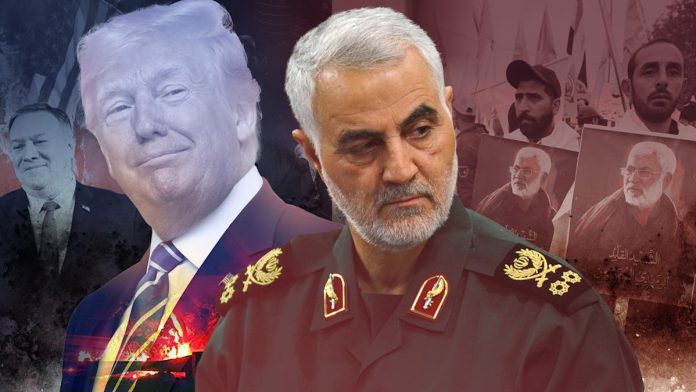An academic has described Iran’s top anti-terror commander, Lieutenant General Qassem Soleimani, as the “architect of resistance” and a “unifying figure” in life and death.
Soleimani, the chief commander of the Islamic Revolution Guards Corps (IRGC) Quds Force, was assassinated on January 3, 2020, in a US air raid outside Baghdad International Airport under the direct order of then-US president Donald Trump.
Miller mentioned the “practical effect” of Soleimani’s legacy on enabling the Axis of Resistance as well as Palestinian factions to collaborate with each other.
“All the Palestinian factions got together and still remain unified, even though the Israelis tried to split them apart; I think that the resistance is unified much stronger than it has been for many years and that is direct because of Soleimani’s activity,” he said, adding that, “he was a unifying figure in life and death.”
Miller also said that Soleimani was the “architect of resistance” and brought together the forces in the Axis of Resistance, a transnational organization, willing to fight US imperialism and target and fight Zionism.
He also lauded the anti-terror commander for his endeavors in bringing the resistance together despite the Shia-Sunni divide.
“He worked seamlessly across the sectarian divide, and the support from [the Palestinian resistance movement] Hamas, predominantly a Sunni organization, is unparalleled for any other particular leader in the Iranian government,” he said.
“Soleimani is somebody who, during his life, accomplished military feats, for which the whole world should be grateful,” Miller added.
Read more: What happens when Qasem Soleimani enters a shop in Tehran!
Gen. Soleimani steadfast ally of Palestinian resistance’
Aamar Kazmi, an anti-imperialist political activist, also told Press TV that General Soleimani was certainly seen as a “steadfast ally of the Palestinian resistance.”
“Many Palestinians, particularly those in Gaza, admire Soleimani, display portraits of him and even in the West Bank, and there are murals of him on the apartheid wall, so he is very well respected in Palestine and lots of tributes were paid to him upon his martyrdom,” he said.
‘Soleimani, architect of the defeat of ISIS’
Elsewhere in his remarks, Kazmi said Soleimani was the architect of the defeat of Daesh (ISIS) terrorists in Iraq and Syria.
“Qassem Soleimani’s role was quite unique; over the years, he was on the ground, literally all over the place in Iraq and Syria, building connections, planning and strategizing, providing inspiration and morale. Sometimes it is possible to attribute too much to a single individual but I do not think this is one of those cases,” he concluded.
During his lifetime, General Soleimani played a significant and direct role all across the region.
In 2006, Soleimani sent military support to Hezbollah to help eject the Zionist invasion of southern Lebanon.
In Syria, Soleimani assumed personal control of the Iranian intervention. He reportedly coordinated the war from a base in Damascus with Syrian officers, Hezbollah, and Iraqi Shia militia forces.
In 2015, he was the main architect of the joint intervention involving Russia as a new partner with Assad and Hezbollah. Soleimani personally briefed President Putin on the strategy.
In 2017, he dealt a decisive blow against ISIS in both Syria and Iraq.
General Soleimani was targeted in a US drone strike directly ordered by Trump, which also killed the deputy chief of Iraq’s Popular Mobilization Units (PMU) Abu Mahdi al-Muhandis among others.
Five days later, Iran, which had vowed to avenge Soleimani’s assassination, launched a barrage of missiles at the US-run Ain al-Assad airbase in Iraq’s western province of Anbar, as well as another airbase in Erbil.
The Islamic Republic also said the attack, dubbed Operation Martyr Soleimani, was a “first slap” and that its retaliation was not over.
source: press t.v













